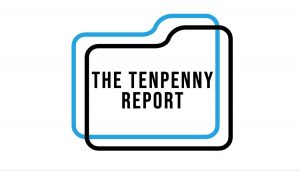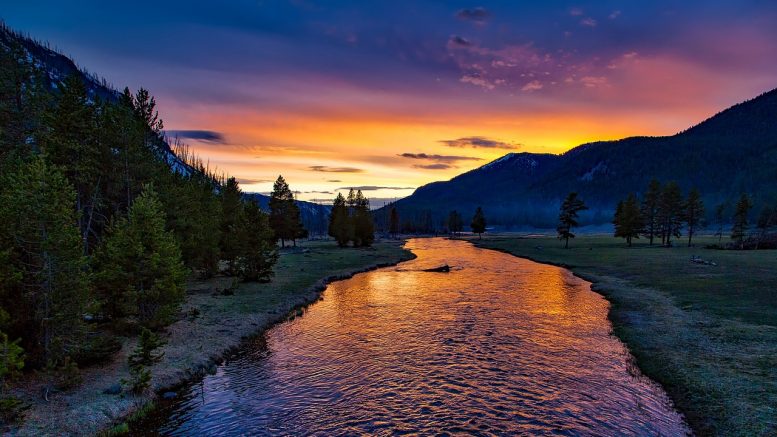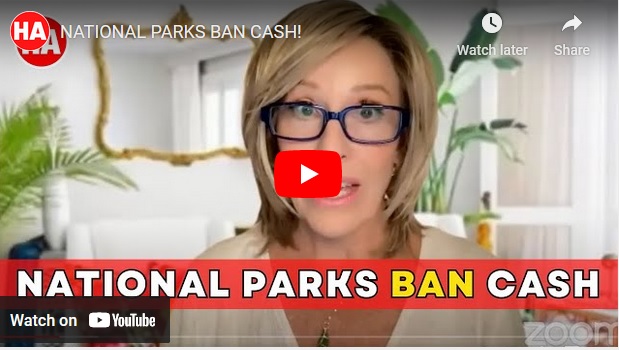For the month of March, the Tenpenny Team is focusing on activism. Our March podcasts provide a platform for you to hear from speakers about the most important topics of our day that require us both collectively and individually to step up to the plate. Dr. Tenpenny herself is an activist against the COVID-19 pharmaceutical products as well as the Covid “vaccines”. In fact, for the past 3 years she has spent a significant amount of time speaking and writing about the ’40 mechanisms of injury’ directly related to these toxic products. In case you are unaware, Dr. Tenpenny has written two books on the various mechanisms of injury caused by the Covid jabs. Mike Adams recently interviewed Dr. Tenpenny about this comprehensive list of COVID-19 vaccine injury mechanisms. You can catch that interview here and can also register free at BrightU to watch the full streaming video regarding Dr. Tenpenny’s 40+ Mechanisms of Injury.
We have also featured guests such as Coach Dave Daubenmire, a 35-year veteran high school football coach who was spurred to action when attacked and sued by the ACLU in the 1990’s for mixing prayer with his coaching. And what an incredible interview Dr. T did with Oli London, a prominent young influencer who has been in the media spotlight for his gender identity struggles which led to him having over 200 plastic surgeries. Oli now has a following of over 2 million people, and is now an activist based in both Washington DC and London, advocating against the rapidly expanding gender-affirming care industry. His book, “Gender Madness,” delves into his personal journey with gender & self-identity struggles. He scrutinizes & explains the negative impact of social media, the education system, and the mainstream medicine industry on young people’s ultimate decisions to transition. Both of these trailers are below for you to watch.
Activism is wonderful and much needed in times like we are living in today. However, before there can be activism, there must be awareness, and that’s why our March Tenpenny Report articles are dedicated to bringing awareness to a number of diverse and critical topics. So far, we’ve published articles on the satanic symbolism hidden in plain sight in the Denver International Airport, and the spraying of toxic chemicals in a Mexico airport (by guest author Maryam Henein). And we’ve got several more topics planned during this entire month.
This week, we wanted to focus on another war being waged against us humans: the war on money. Everything from grocery stores to entire countries are going cashless. We found some amazing articles on this topic by writer Jacob M. Thompson of the Wine Press News but one in particular stood out: ‘US National Parks Are Quietly Going Cashless’. We have Mr. Thompson’s permission to reprint the original article below. Our feeling is that when our national parks go cashless, we’re probably in trouble! Read his writing and increase your awareness to the significance of what’s in store for us if we do actually become a cashless society.
————————————
US National Parks Are Quietly Going Cashless
by Jacob M. Thompson of the Wine Press News
A number of national parks throughout the United States have been quietly going cashless, exacerbated by The Covid War in recent years.
For example, in April, 2023, Death Valley National Park in California, announced that they would only receive credit or debit card payments moving forward, per a news release from the National Park Service (NPS). The park claimed it took in $22,000 cash payments in 2022, but cost NPS $40,000 to have it processed.
‘The transition to cashless payments will allow the NPS to redirect the $40,000 previously spent processing cash to directly benefit park visitors,’ NPS explained.
This is just one the increasing list of national parks making this transition, among the 424 officially registered national parks in the U.S.
Travel website Frommer’s listed the current number of national parks going cashless, as of May, 2023:
- • Badlands National Park, South Dakota
- • Bent’s Old Fort National Historic Site, Colorado
- • Crater Lake National Park, Oregon
- • Chaco Culture National Historical Park, New Mexico
- • Cumberland Island National Seashore, Georgia
- • Death Valley National Park, California
- • Devils Tower National Monument, Wyoming
- • Fort McHenry National Monument and Historic Shrine, Maryland
- • Harpers Ferry National Historical Park, West Virginia
- • Hawaii Volcanoes National Park, Hawaii
- • Home of Franklin D. Roosevelt National Historic Site, New York
- • Isle Royale National Park, Michigan
- • Little Bighorn Battlefield National Monument, Montana
- • Mount Rainier National Park, Washington
- • Pipe Spring National Monument, Arizona
- • Prince William Forest Park, Virginia
- • Rocky Mountain National Park, Colorado
- • Sleeping Bear Dunes National Lakeshore, Michigan
- • Thomas Edison National Historical Park, New Jersey
- • Vicksburg National Military Park, Mississippi
- • Wind Cave National Park, South Dakota
- • Wright Brothers National Memorial, North Carolina
This list, however, may be incomplete. You can check by searching for a specific national park and check what the entry fees are on the NPS website.
National Park Service communications representative Ellie Stuckrath told Frommer’s in an email that the reasoning behind this is to “reduce the amount of cash and check deposits across the federal government in order to reduce organizational risk.”
Cashless options reduce transaction times at busy entrance stations, decrease the risk of theft, reduce chances of errors, and maximize the funding available for critical projects and visitor services.
[The decision to move toward fully cashless fee collection] rests with [each] site’s leadership, and we cannot predict which, or if any, sites will go cashless in the future.
Colleen Rawlings of Crater Lake National Park, which only accepts plastic and mobile payment apps for entrance, said in a statement:
Cashless transactions are actually processed faster than cash transactions,” so the former “reduce the time spent waiting in line at the entrance station and afford the visitor more time to enjoy the park.
Moreover, Greg Dudgeon, the park superintendent of Mount Rainier National Park, also said in a statement, cited by Travel + Leisure:
Entrance fees are an important source of revenue national parks use to improve the visitor experience. Moving to a cashless system helps the park manage visitor dollars more effectively. Going cashless reduces the amount of time park staff spend handling cash, increases the amount of fee revenue available to support critical projects and visitor services, and improves accountability while also reducing risk.
In conclusion, we are at war. There is a war for our cash, because those who control the money control the people. There is a war for our kids; they are being brainwashed into transgenderism. There are wars for our food and our freedom. Remember, before activism, there must be awareness. We are trying to do our part by bringing these issues to your attention. Once you become aware, it’s easy to also become overwhelmed. There are so many issues, and you can’t fight them all. Choose one that resonates with you, and become an activist for that topic. The more of us who speak out, the more chance we have to win this spiritual war.
++++++++++++++++++++++++++++++++++++++++++++++++++++++++++++++++
 Like what you’re reading on The Tenpenny Report? Share this article with your friends. Help us grow.
Like what you’re reading on The Tenpenny Report? Share this article with your friends. Help us grow.
Get more of Dr. Tenpenny’s voice of reason at her website.
Join our list here
Make a donation here (and thank you!)
++++++++++++++++++++++++++++++++++++++++++++++++++++++++++++++++
Jacob M. Thompson is a writer for the Wine Press News, a Christian news and ministry website that reports on current world events across various topics. Wine Press shares its thoughts and commentary on the current news, while comparing it with the word of God. The WinePress also provides free Bible studies and updates on prophetic events. The WinePress is also an outlet for materials for Christians to witness and spread the gospel of Jesus Christ.


